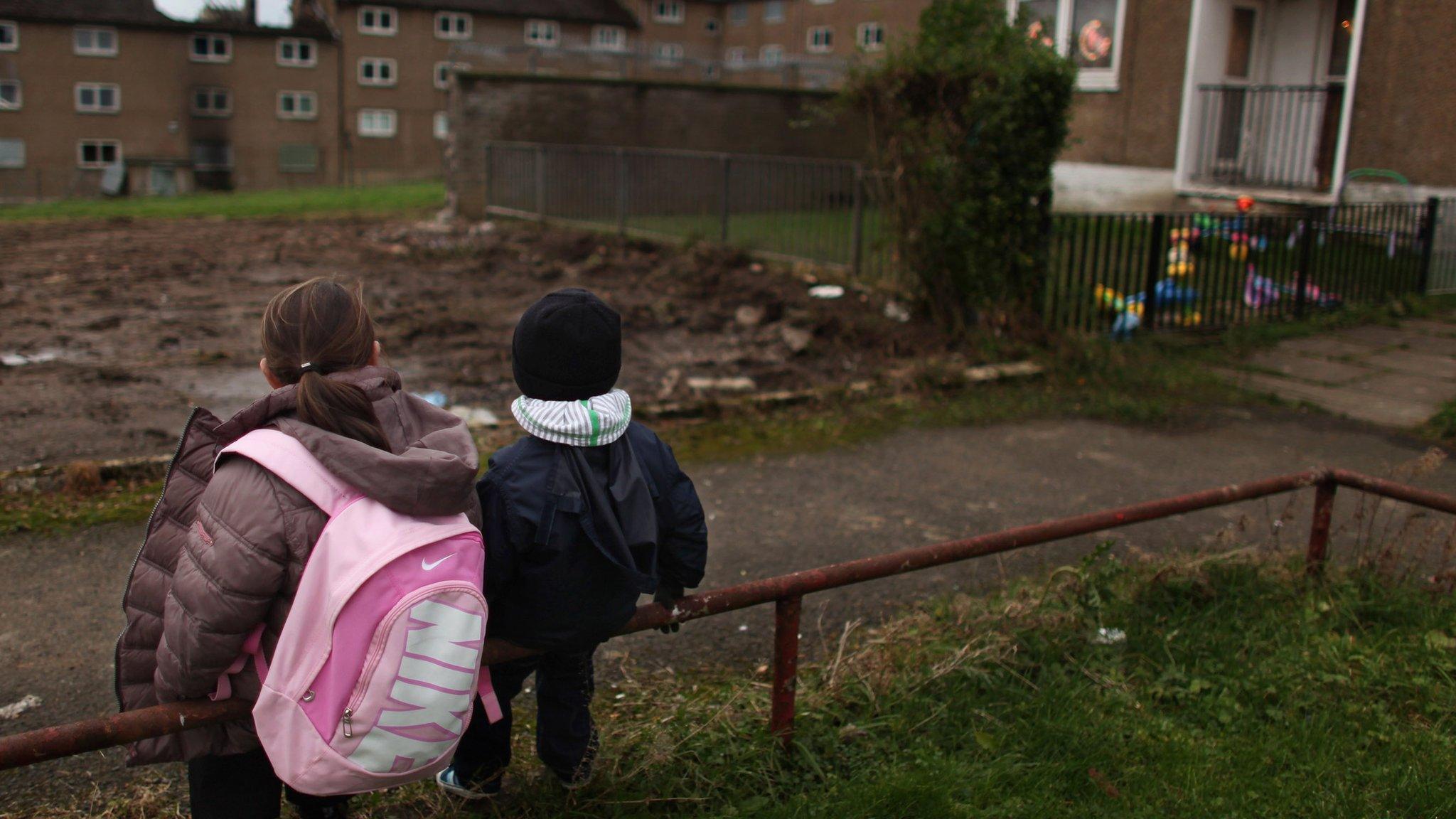Child poverty: Baby banks 'see increase in users'
- Published
Staff at a baby bank have said they have seen a 10-fold increase in referrals since opening two years ago
More than a third of babies are living below the poverty line in the UK, a leading social research group has said.
The Joseph Rowntree Foundation (JRF) said low-paid families were struggling under a "rising tide of work poverty".
Despite the government saying 300,000 fewer children are living in absolute poverty than in 2010, baby banks said they were seeing an increase in users.
Vicki Miller, who used a baby bank, said: "I didn't know that support was out there."
There are more than 100 baby banks operating across the UK, providing essentials for newborns, including nappies, wipes and cots.
In an analysis of government data for the BBC, the JRF said in 2016-17 there were 302,838 children under the age of one living in families with a household income substantially below the UK average - its definition of poverty.
That represented 35% of all children in that age group with a single parent earning £198 a week or less (after housing costs) rising to £360 a week for a couple with two children.
'Two weeks on baked beans'
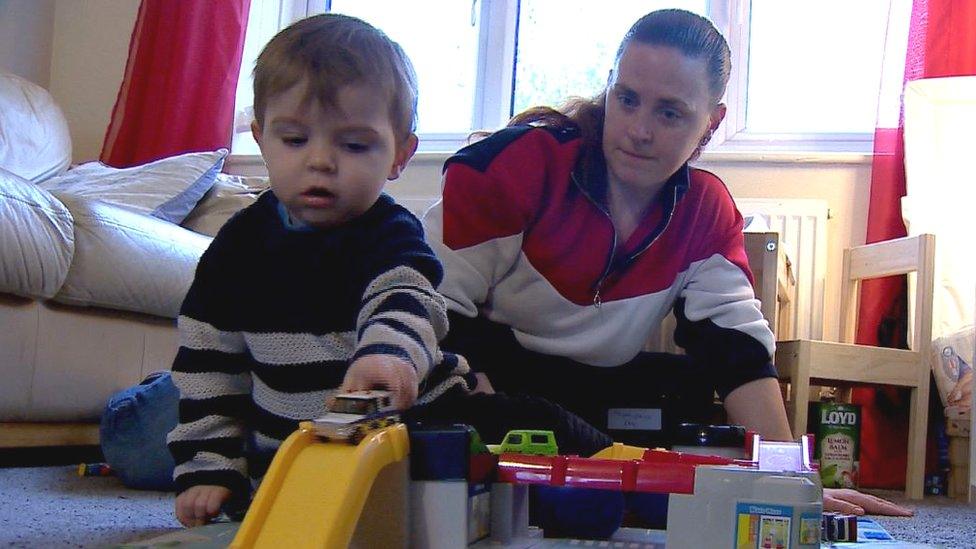
Vicki Miller now works part time to support her son Charlie who is now nearly two years old
Ms Miller, from Castleford, West Yorkshire, went from working full-time to being at home with newborn Charlie, unable to afford basic essentials.
She first went to a food bank when her son was just five weeks old after she "went two weeks just living on baked beans".
She was then referred to the Tiny Hands baby bank in Pontefract when Charlie was 13 weeks old.
"It was absolutely amazing receiving a gift of baby stuff which was going to benefit Charlie, it was the greatest thing ever."
Charlie is now nearly two and Ms Miller works two days a week, so is no longer living below the poverty line.
However, after nursery fees and other bills are paid she is often left with just £30 a week for food and fuel.
Find a baby bank near you, external (From Little Village HQ)
'We've run out of nappies or milk'
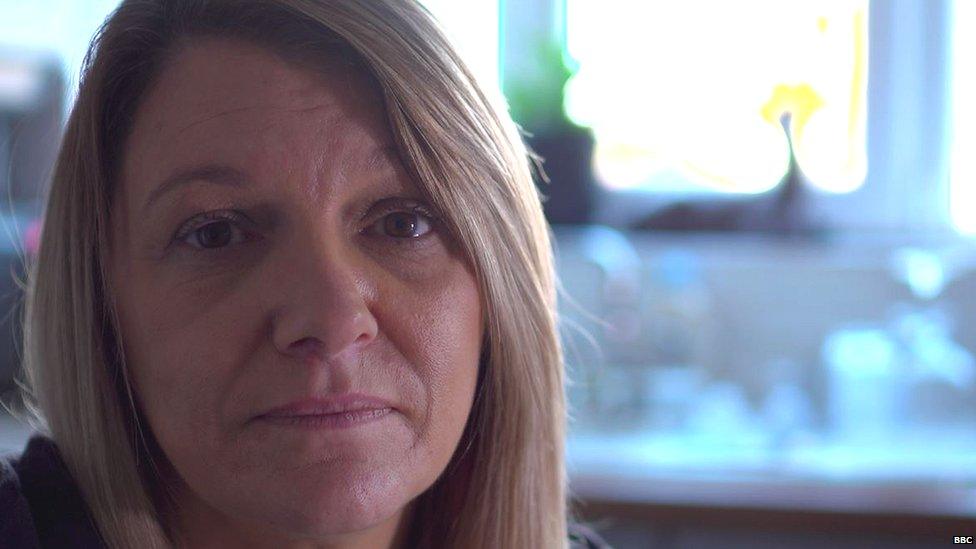
Jane Robinson has seen demand snowball at the baby bank she set up two years ago
The Tiny Hands baby bank was set up by Jane Robinson two years ago.
The scheme started with four boxes of donations in her front room and sent out two bundles in her first week.
Mrs Robinson says most referrals come via healthcare professionals, including midwives and health visitors.
She now works up to 50 hours a week to keep up with demand and has two volunteer helpers.
"We've had quite a few that are mums fleeing domestic violence, we have young mums living in mother and baby units and we have a lot of working families that need help with the basics.
"They might ring us up and say 'I don't get paid until Friday but we've run out of nappies or milk', or they just need topping up on clothes."
'Left scrabbling day to day'
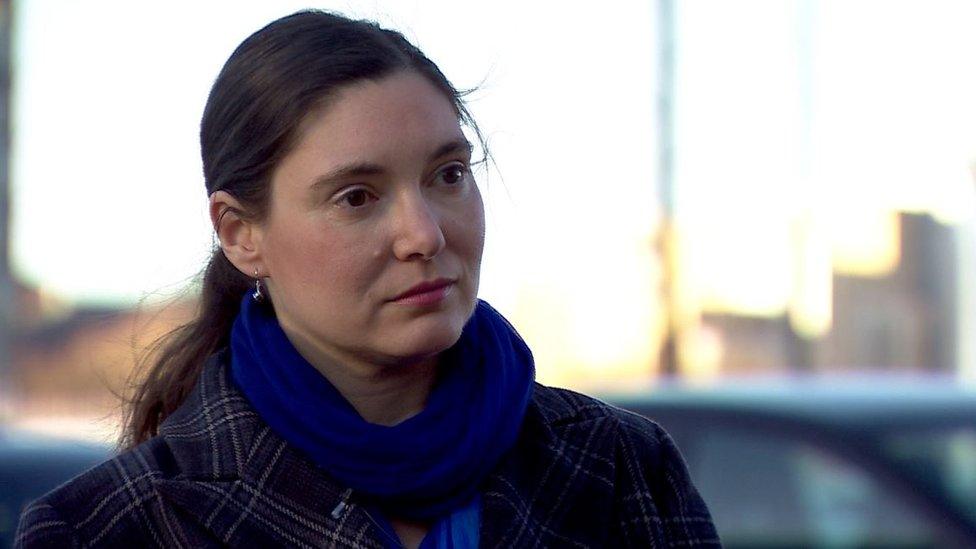
Helen Barnard from the Joseph Rowntree Foundation called for an end to the government's freeze on benefits
Helen Barnard, deputy director for policy and partnerships for JRF, said: "What we are seeing is this rising tide of work poverty sweeping across the country.
"Families with children are locked in by low pay, high housing costs and weakening social security and they are really left scrabbling day to day, week to week to make ends meet.
"One of the biggest things that's happened is the government chose a few years ago to freeze the tax credits and benefits for families, and we've all seen prices going up in the shops but a big chunk of people's incomes is just standing still."
How many children live in poverty?
The government says household incomes have never been higher.
Using their measure of absolute poverty, which is calculated against median 2010-11 income, a government spokesman said there were now one million fewer people living in absolute poverty since 2010.
They added: "Since 2010 we've introduced the National Living Wage, doubled free childcare and helped workers keep more of the money they earn by cutting taxes for 32 million people."
Government figures for 2016-17, which are the latest available, external, show 3.5m children were in absolute poverty - a number down 200,000 from the year before or 300,000 lower over five years.
According to the JRF, the definition of relative poverty for a single parent with a child under the age of two is earnings of £198 a week (after housing costs).
That rises to £360 a week for a couple with two children.
In December, the JRF calculated 4.1 million children were living in poverty in the UK, a rise of 500,000 in five years.
You can see this story in full on BBC Inside Out Yorkshire and Lincolnshire at 19:30 GMT on BBC One on Monday 11 February, or via iPlayer for seven days afterwards.
- Published20 December 2018
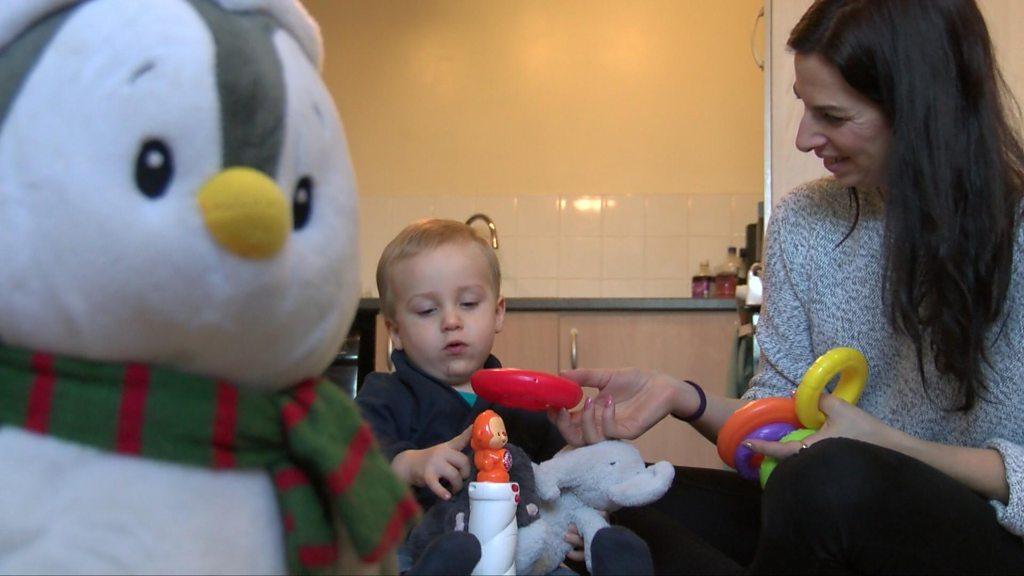
- Published6 December 2018
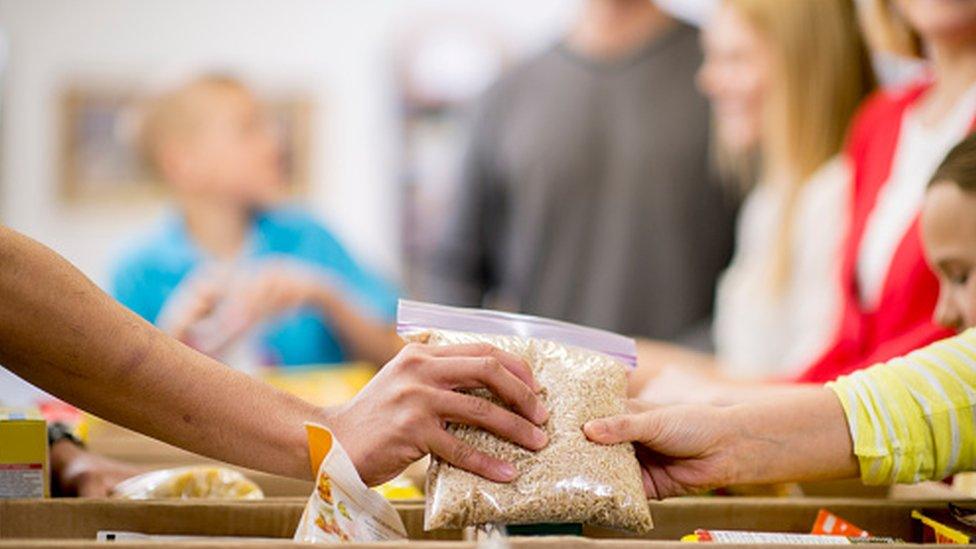
- Published17 September 2018
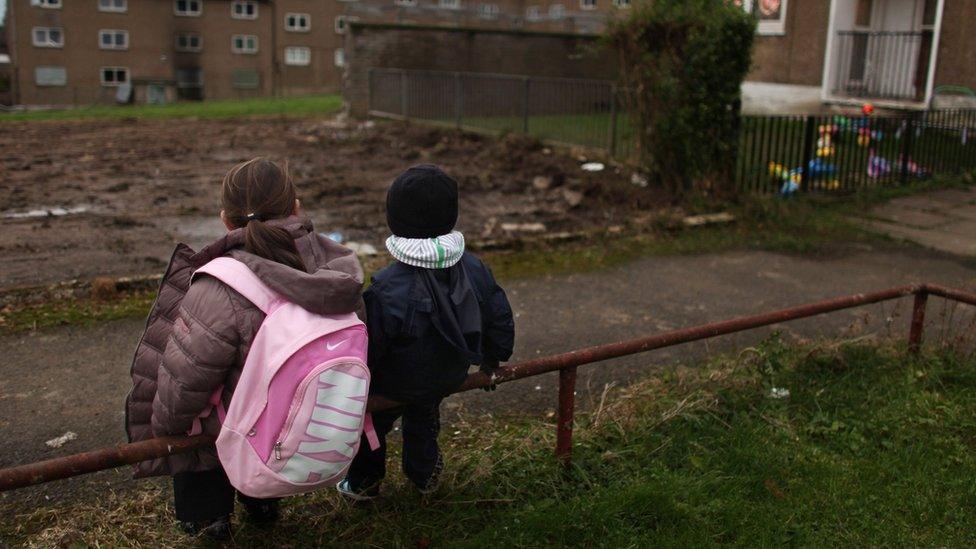
- Published2 April 2018
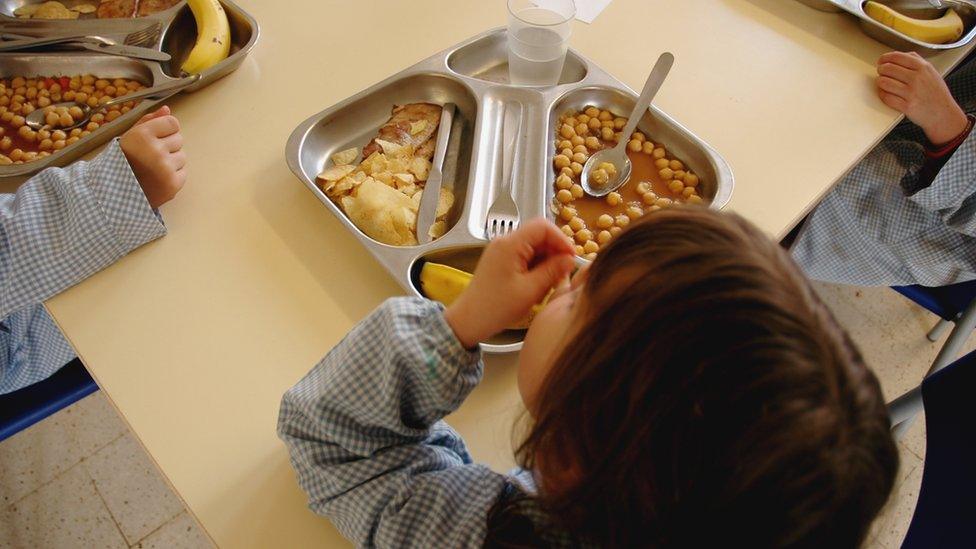
- Published4 December 2017
